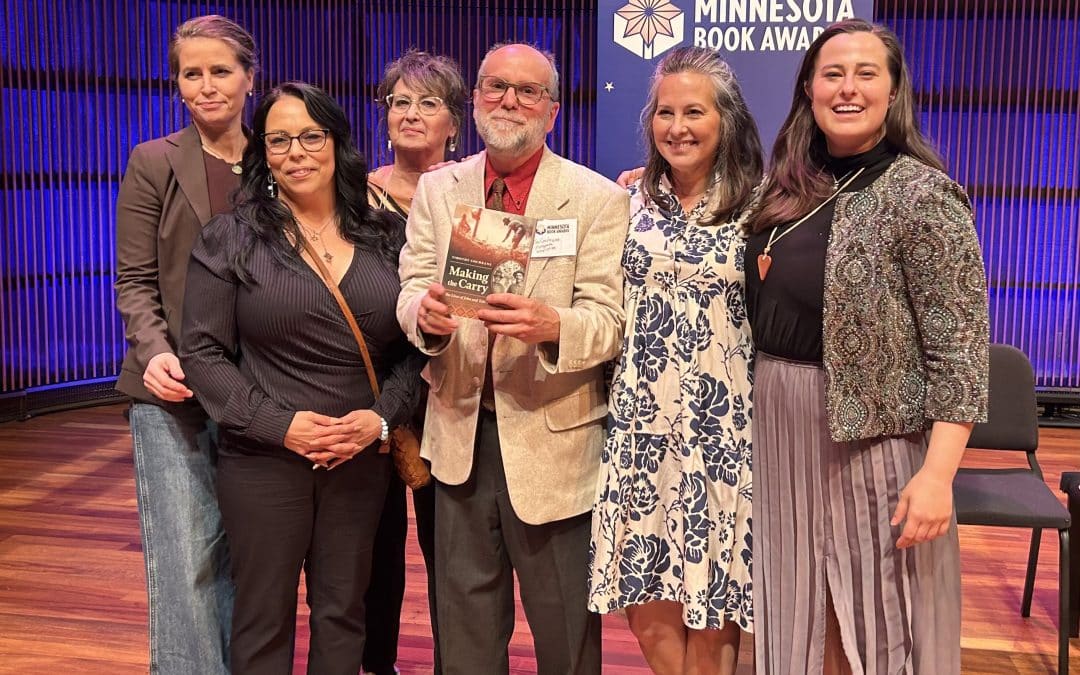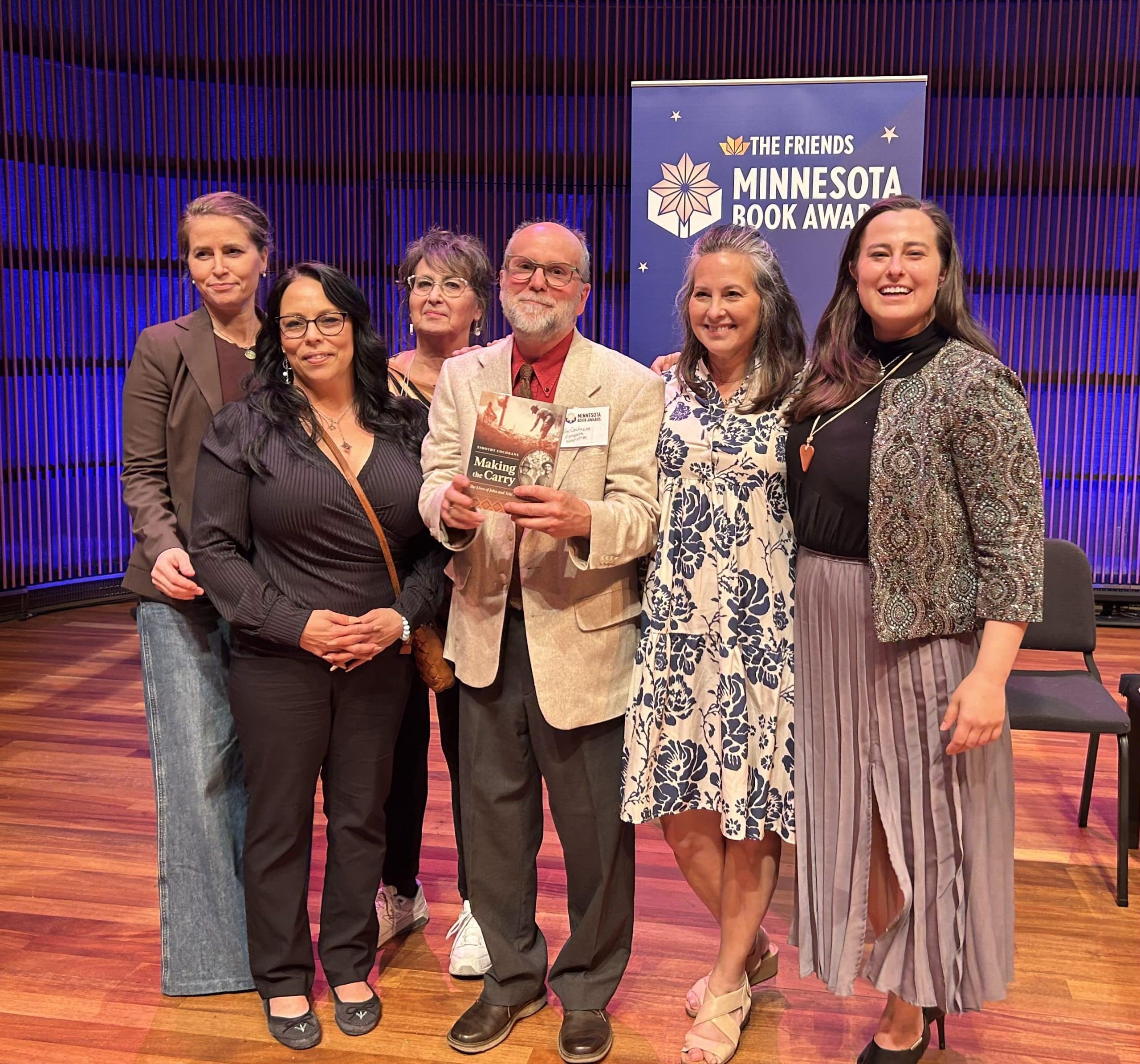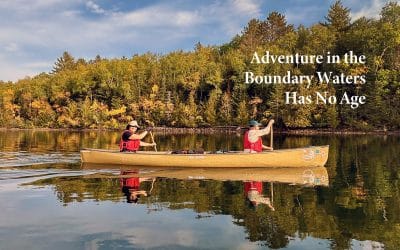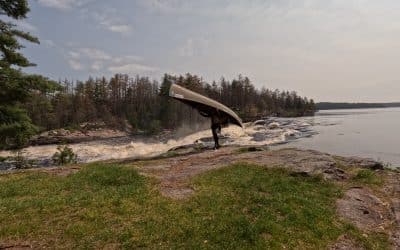Grand Marais author, historian and general good soul about town, Tim Cochrane, won a Minnesota Book Award this week.
Cochrane won the nonfiction prize for “Making the Carry: The Lives of John and Tchi-Ki-Wis Linklater.”
Cochrane’s book is rooted in the Boundary Waters, as it shares the story of the couple who lived on the Minnesota/Canada border in the Quetico/Superior region in the early 20th century.
John Linklater lived in what is now the Boundary Waters Canoe Area Wilderness for many years. Linklater was of Anishinaabeg, Cree, and Scottish ancestry. He worked as a guide, trapper, and eventually as a state employee tracking other trappers who violated the law.
As explained in the KFAI MinneCulture radio documentary from 2023, Cochrane’s book shares the story of Linklater and his wife, Tchi-Ki-Wis, of the Lac La Croix First Nation. The couple lived for most of their adult lives, from about the 1870s until the 1930s, on Basswood Lake in what is now the BWCA. As Cochrane explains, the Linklaters lived through the introduction of logging and mining in northern Minnesota. They witnessed firsthand the arrival of white people, first as waves of trappers arrived along the border lakes, and later when industry rolled in, forever changing the landscape.
“They live through just about every kind of change imaginable. The first treaties, the first reservations, the first Indian agents, the first miners, the first railroad people, and in Quetico, the first soldiers going through for the Dawson Trail,” Cochrane says in the documentary. “And then farms and the emigration, largely in the, in their part of the world close to Winton, of mostly Finnish Americans. And the growth of these towns, all these things that that all happen in their lifetime.”
John Linklater, who also went by Jack, knew his way around Isle Royale, most of Superior National Forest and what is now Quetico Provincial Park in Ontario. He worked as a trapper and a fur dealer at various times in his life. Cochrane says that while Jack could navigate the local woods and waters, Tchi-Ki-Wis was celebrated for her skill in beadwork and weaving. Indeed, Cochrane says, Tchi-Ki-Wis was, in many ways, the embodiment of the Indigenous women who lived in this part of the world, before, during and after the fur trade.
“She made these remarkable moose calls that are made out of birch bark and they have geometric figures sometimes beaded, sometimes not. She was always tanning moose hides. And she would always be making moccasins and always giving away moccasins,” Cochrane says. “She made these remarkable geometric mats that the largest one is four and a half feet by eight feet. And they’re woven with the inner bark of white cedar, and dried. And they were once called Ojibwa linoleum, because they were used as the floor coverings. But that art died out in the 1920s but she went on to sell these things to wealthy white people. And a lot of them persist today.”
Listen to the full KFAI radio documentary below.
rel=”noopener”>Women of the Fur Trade
The food storage order requires visitors to properly store food unless in the process of eating, preparing or transporting food. Proper storage reduces the chance of bears being rewarded when in campsites, trails, portages, landings or other recreational areas, the Forest Service states. The Forest Service did not make a public splash about this change to policy. During an April 26 announcement the Forest Service made titled “Tips for Recreating in Bear Country,” there is no mention of the new law that could result in BWCA campers being fined or imprisoned for violating the order.
It’s worth noting that the rule also applies to the last month of winter camping in the BWCA, meaning people chasing lake trout during March will need to hang their food from a tree or in a certified container. If you don’t, you run the risk of being fined or going to jail. The Paddle and Portage team regularly camp in March and have never seen or heard of a bear coming into a winter campsite.
In recent years, there have been several areas with recurring bear sightings and interactions in the BWCA, including reports from Rose Lake, Duncan Lake and Daniels Lake in the Middle Gunflint Trail area. Other areas with abundant bear activity and interactions include the Moose Lake Chain near Ely, as well as areas at the end of the Gunflint Trail, including Seagull, Jasper, and Red Rock lakes.
In addition to proper food storage, there are other actions that visitors can take in bear country that help keep bears wild, alive, and healthy, including by making sure anything with a scent is properly stored, the Forest Service emphasizes. This includes, but is not limited to, toothpaste, wrappers, lip balm, soap, petroleum products and lotion.
Disposing of fish remains at least 200 feet from any campsite, portage, trail and shoreline is a requirement in the BWCA and can help reduce bear interactions as well.
Meanwhile, if you have questions about bear resistant food storage, visit the Forest Service’s website.
Other Recent Articles
May Issue of the Paddle and Portage Magazine Now Available
Click here to become a P&P member and access the digital magazine. The ice is long gone. The bugs are here. Moose calves are walking with their mothers through the woods. The Fishing Opener came and went. Canoe season has arrived to the Boundary Waters. In the May...
Busy Month For Search and Rescue in the BWCA Continues Following Incident at Curtain Falls
Curtain Falls in the BWCA. Photo by Kevin Kramer The search continues on a rainy Monday morning for two missing canoeists in the Boundary Waters Canoe Area Wilderness. Two canoes carrying four individuals went over Curtain Falls in the BWCA Saturday night. Two...
Duluth Man Died in His Favorite Place: The Boundary Waters
Mark Ham paddles in the BWCA. In this photo, Mark is wearing an NRS Zephyr PFD. Submitted imageDULUTH – He didn’t have enough stubble. That’s one of the first observations that Will Ham and his mother, Cathie, made when they saw their father and husband, respectively,...








